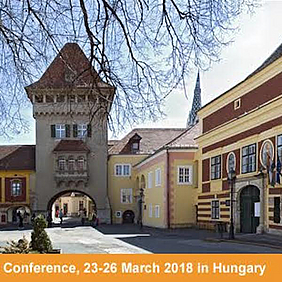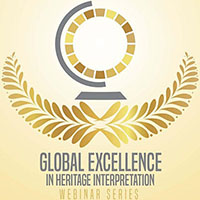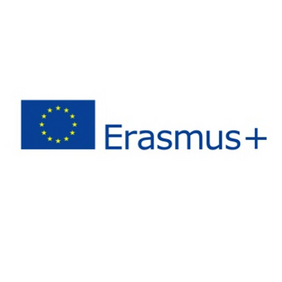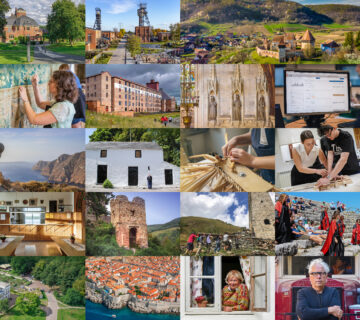Who are we and where do we belong? Every human being will ask these questions at some points in their lives. Answers often depend on what people consider their heritage to be and how they interpret it.
In the European Year of Cultural Heritage (EYCH), ‘Heritage and Identity’ will be the theme of our Interpret Europe Conference which will take place from 23 to 26 March in KÅszeg in Hungary, at its border with Austria. It will be organised by the Hungarian Association of Cultural Heritage Managers (KÃME) and opened by the EU Commissioner for Education, Culture, Youth and Sport, Tibor Navracsics.
Interpret Europe conferences regularly attract 150-200 participants from more than 25 countries, all of whom share a dedication to support local people and visitors at heritage sites in their search for meaning in heritage. Besides seminal keynote speeches and study visits to remarkable heritage sites, IE conferences benefit from up to 80 presentations and interactive workshops delivered by participants.
We considered how Interpret Europe could best contribute to recent challenges and debates and found that ‘Heritage and Identity’ would be an excellent theme. The question of identity is key when it comes to one’s feelings towards Europe in all its diversity and one’s relationship with single nation states, regions and local communities. One European region where identities most intermingle is the Austro-Hungarian border area. We, therefore, intend to run the conference as a border-crossing event, starting our pre-conference tour at Vienna from where we will travel into Hungary and ending our post-conference tour in Budapest. Study visits will include sites within the border-crossing FertÅ / Neusiedlersee Cultural Landscape (a UNESCO World Heritage Site).
Destinations will be as different as Esterháza, the ‘Hungarian Versailles’, which belonged to one of the most famous landowning families of the Austro-Hungarian Empire, or the Pan-European Picnic Park where the Iron Curtain was first lifted in 1989.
In relation to the theme ‘Heritage and Identity’, we now call for abstracts of papers regarding questions such as:
- How can we consider different collective (religious, national, local, ethnicâ¦) identities?
- Is there a ‘European identity’ mirrored by ‘European heritage’?
- How should we cope with social aspects (education, wealth, gender,â¦)
- linked to people’s identities?
- How can we address humanist values such as non-discrimination and human dignity?
- How can we encourage people to reflect upon heritage sites from different perspectives?
- How does interpretation alter the way identity constructs are passed on or questioned?
- Are there different identity constructs east and west of the former Iron Curtain?
- How do encounters with natural heritage shape the identity of people?
Presentations can be 25 or 55 minutes long and we generally recommend keeping them as short and inspiring as possible. Workshops can be 55 or 125 minutes long and will always be characterised by the active involvement of participants.
On our conference website you can find the submission form and abstract requirements. We look forward to receiving your abstracts of papers by 15 December 2017.
We will also accept abstracts of papers dealing with new developments in heritage interpretation theory and practice even if they are not directly related to the conference theme of ‘Heritage and Identity’.
Important dates
15 December 2017: Deadline for submission of abstracts of papers
31 December 2017: Authors receive feedback about their abstracts
15 January 2018: Abstracts of papers will be online
31 January 2018: Deadline for registration and payment for authors
15 February 2018: Deadline for submission of full papers (full papers are not mandatory)
22 March 2018: Full papers that have been delivered will be published in online proceedings
23-26 March 2018: Conference takes place
22 March 2018: Full papers that have been delivered will be published in online proceedings
23-26 March 2018: Conference takes place




